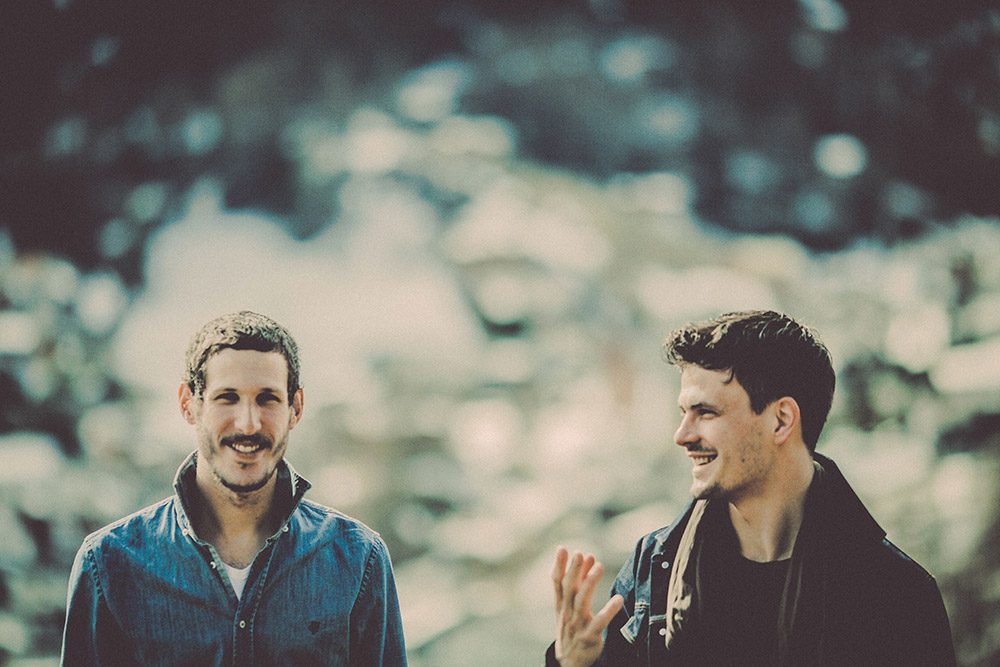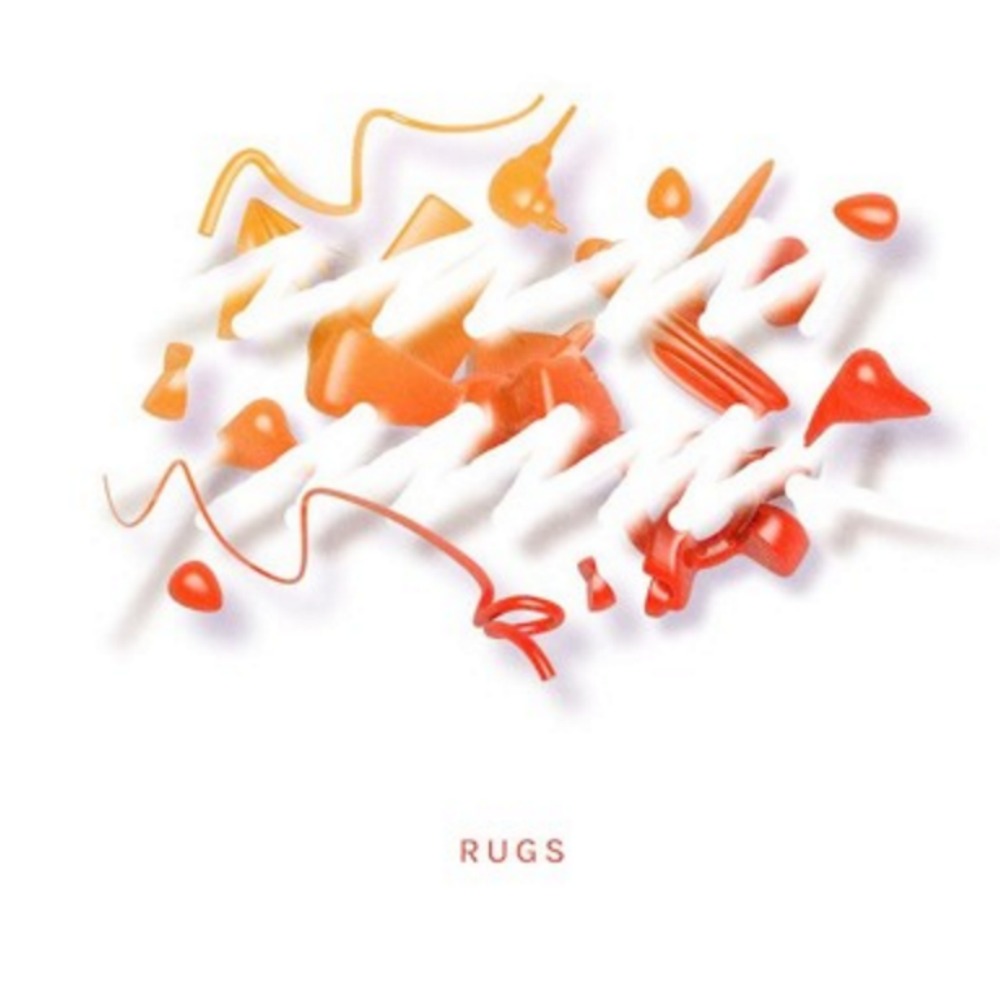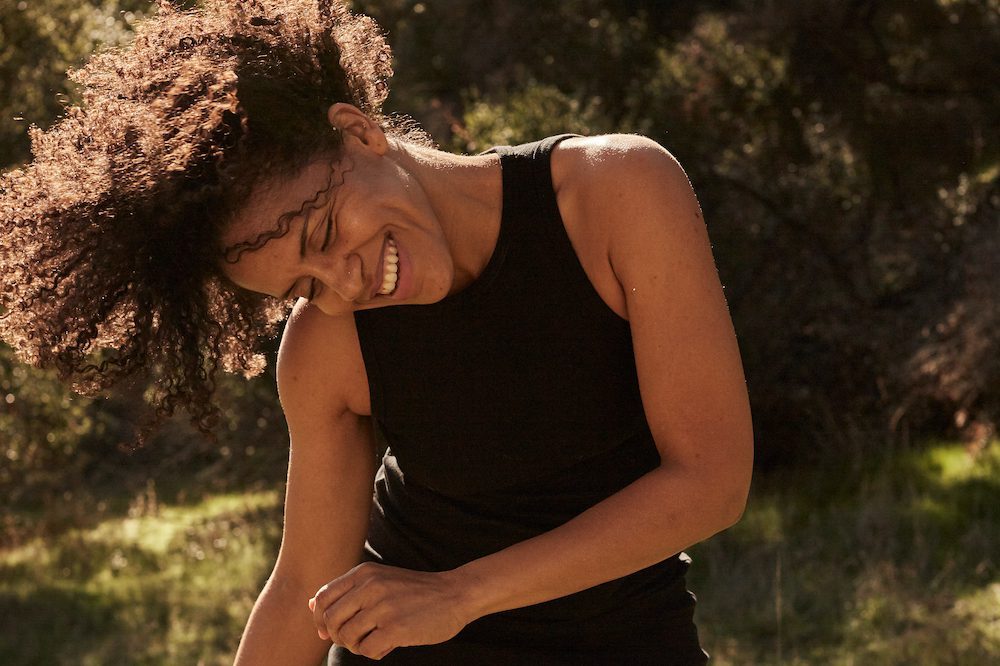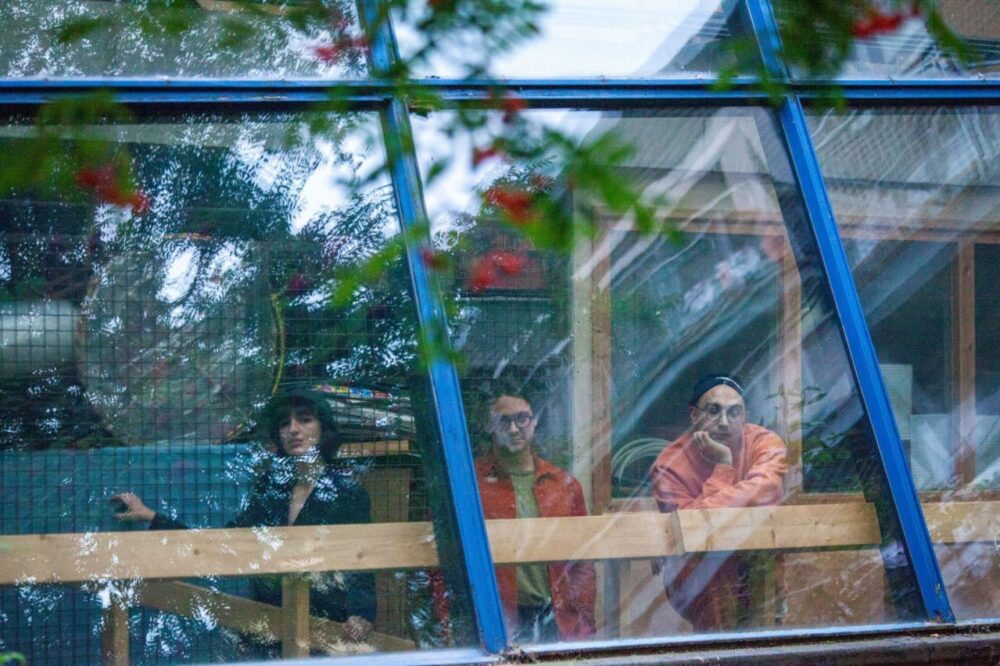
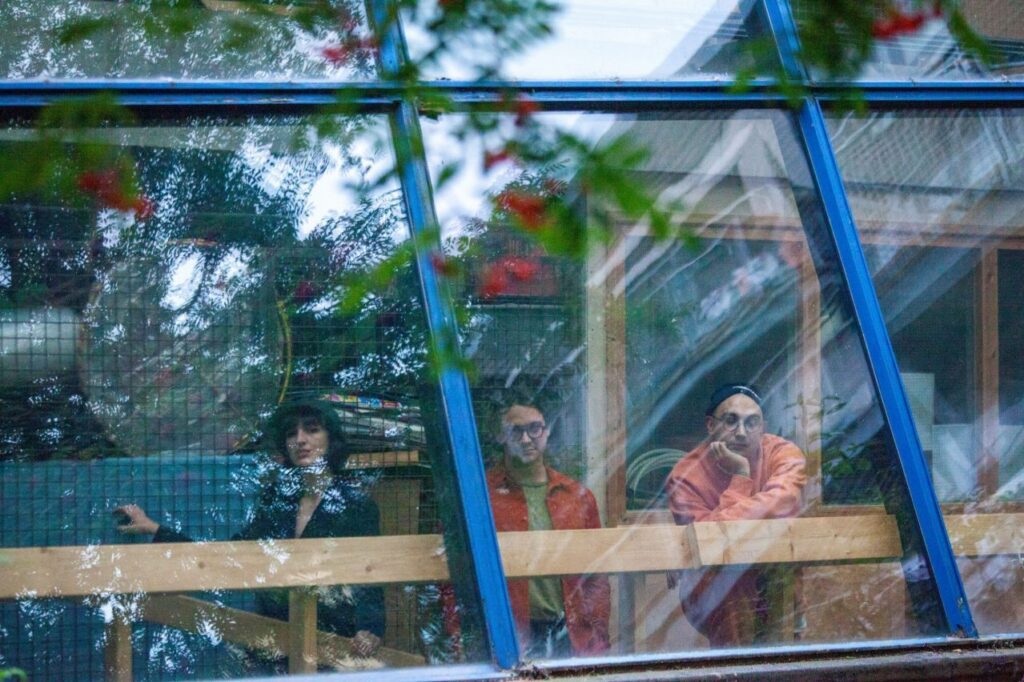
On her first trip to a local Costco, Merida Richards spotted a massive cake in the bakery section and was suddenly preoccupied with the desire to buy it, sequester herself in a hotel room, and consume the entire thing. It was a silly thought – fleeting really – but it’s those bizarre, sometimes ugly impulses that she set out to examine with her band Virginia Wing on their latest LP private LIFE, out last week via Fire Records.
After recording their 2018 breakthrough LP Ecstatic Arrow in the Swiss Alps and completing their first North American tour in 2019, the Manchester trio – which includes Sam Pillay and newest addition Christopher Duffin – had decided to take a more inward-looking approach to their next offering, and to record it mostly at home. While Ecstatic Arrow read as something of a feminist manifesto, presenting a vision of the world as it could be, Virginia Wing planned to unearth their various traumas, addictions, and the shame associated with these on their next project, which they had decided to call private LIFE. “You’re never gonna match the experience of holing up in Switzerland for a month, you know what I mean?” Richards tells Audiofemme via a Zoom call. “So we thought, we’ll just do it at home; the title and the subject matter seemed applicable.” It was pure coincidence that just as they were assembling gear and beginning to write new material, a worldwide pandemic hit, effectively dooming humanity to examine their own compulsions in the solitary confines of a mandated lockdown.
“At the start of last year we were getting together at our rehearsal room and figuring stuff out, but then obviously that stopped, and it just became a process of slowly chipping away and building little bits of songs, sending them back and forth,” Richards says. “It did get pretty maddening, I’m not gonna lie. When you’re just stuck inside working on the same thing, and you can’t see someone face to face and go like, ‘Oh, what do you think this needs?’ There was not much second guessing; it was very much just like go with your gut, and then convince the others that it’s good.”
Collectively, the band wanted an eclectic sound bursting with dozens of tiny interlocking elements, and they’ve certainly achieved that; the album is choppy but cohesive, intimate but frenetic, and reveals new details over each listen. “That’s what we were going for – stylistic decisions encouraging surprise, like in the way it was mixed,” Richards points out. “Suddenly something’s really loud and it’s kinda jarring, like a little sample or something will knock you and it can almost be unpleasant. Certain songs are really high-end and then all of a sudden the bass kicks in. It was that constant feeling of movement that we wanted, a kind of controlled chaos.”
Densely layered with futuristic sounds, angular structures, and post-punk inflection, private LIFE sounds more like a bustling party than a solo, meditative pursuit – so much so that Richards admits they’ll likely have trouble replicating it in a live setting, should touring ever resume. But buried in the globular synths, bold brass, disjointed rhythms and new-agey textures reside dark lyrical themes just as discomfiting as the surprising sonic twists. From “OBW Saints”: “Compulsive habits are the products I supply/I’m at ease with always deceiving/I’ll feel so clean when I come out the other side.” From “Return to View”: “I worked harder every time/I could never say exactly what it’s like/In a solemn congregation I tried/To behave the way I want to be described.” And “Soft Fruit”: “Like an infant trying to find/Comfort in a deafening cry/There’s chaos in my heart/I’m being ruined by desire.”
Richards’ sprechgesang vocals exude a cool confidence that belies her desperation, even from the first lines of album opener “I’m Holding Out For Something.” Throughout the album, she takes on the role of her own therapist, or, in one instance (“Lucky Coin”) something of a fortune teller, asserting particular mantras as one might leave Post-It notes on a bathroom mirror: “Put your faith in a cup/Fill it up to the top/And remember your thirst isn’t a choice,” or “It’s human/To examine the dirt that collects under your nails/And forget that it’s the same/As the earth under your feet.”
“When I write lyrics, I’m not pretending that I’m not writing the lyrics, you know what I mean? I might say ‘you’ but half the time I mean me – it’s always filtered through my perception of things,” Richards says. “I’ve had therapy. I think everyone should, but I had to stop because I couldn’t afford it. I think it’s so useful just to have someone say stuff back to you in a neutral way. Everyone has that moment where it’s like, I need guidance from something and I’ll go with the first thing that comes to me, I’ll go with anything, like these little talismans that you just like tell yourself to get through life. Use what you’ve got, whatever it may be. I think everyone needs guidance, don’t they?”
Noting that urge, shame and impulse are essentially part of the human condition, Richards remains vague about the band’s specific experiences around addiction and trauma, saying only that the lyrical themes were “something we needed to focus on. Initially, maybe before I considered it being traumatic, there were certain things about private life that I wanted to explore… the stuff that you hide away, the stuff that you don’t share. I wanted to go into more uncomfortable territory.”
That intentionally stands in contrast to the hopeful, cathartic nature of Ecstatic Arrow. “On this record, I wanted to explore stuff you’re ashamed of feeling and thoughts you’re ashamed of having, and stuff that goes against your ethos, maybe because of a religious upbringing or repressed sexuality or whatever,” Richards says. “I’m in my thirties now; I’m just I’m too tired to try and be anything I’m not. You just have to accept it all, stop trying to change everything. If I feel like disgusting and sexy at the same time, so be it.”
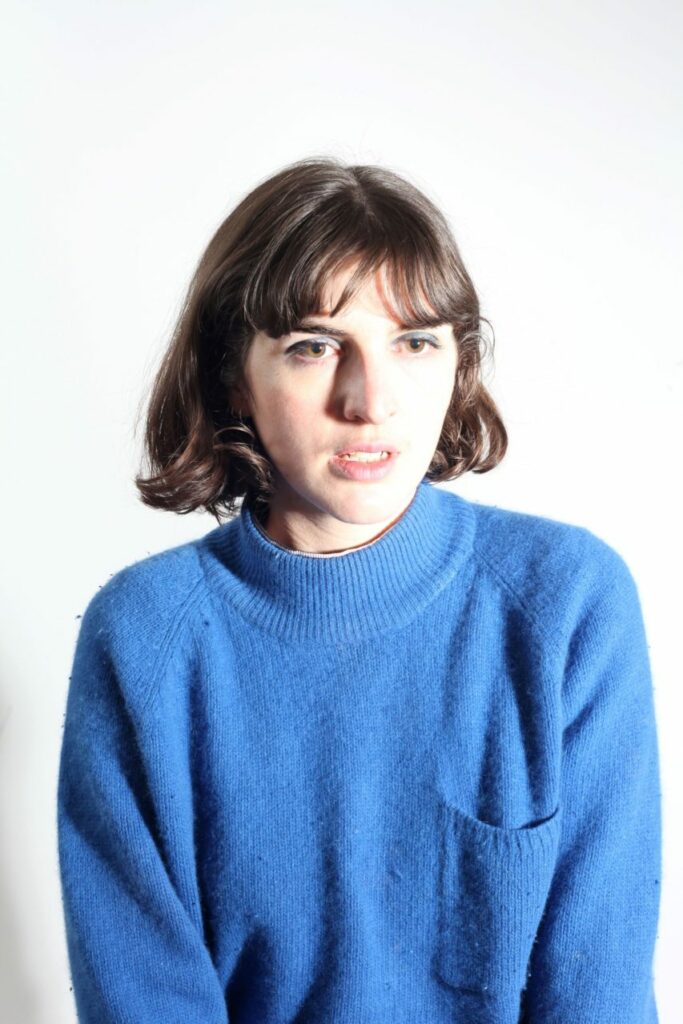
As with the band’s social media presence, there’s a dichotomy constantly at play between earnestness and sarcasm (which Richards attributes to “just being British”) reflected in the band’s meld of influences: the sampling of hip-hop, the irreverent electronic flourishes akin to Laurie Anderson and Robert Ashley, the improvised jazz horns, the avant-pop sensibility holding it all together.
“The progression has just been really striving to do something original. I think as the years have gone on, we’ve absorbed our influences, rather than trying to pick out elements we want to try and replicate. It’s more about creating something that’s really unique,” Richards says. “We’re into anything that fits that space between being really serious and kinda silly – like a lot of art music, there’s a lot of playfulness there. We’re really drawn to that stuff because that’s how we are as people. We’re people who listen to a lot of music. We just want to fit into someone’s record collection alongside everything, specifically music that exists in an artistic realm but also has a sense of levity and doesn’t take itself so seriously.”
That’s especially apparent on “Half Mourning,” the only song Richards wrote with the pandemic situation in mind, equally inspired by the existential quandaries it created and by apocalyptic Young Marble Giants bop “Final Day.” The songs lyrics describe being “stuck like a magnet;” Richards explains that although she appreciates routine, random conversations and freedom from a schedule is necessary to achieve some kind of release, which the band often gets from touring.
“What’s so hard about last year, is that there was so much chaos that was also not very eventful. Emotional chaos, but nothing could actually happen,” she says. She describes an experience she had last summer, walking in the park opposite her flat, in which she felt invisible. “It was really weird – I guess it’s like a dissociative sort of state. I mentioned it to a few friends of mine, and they’d experienced the exact same thing,” she recalls. “There’s something about being witnessed in the real world that proves you’re alive. When you’re not partaking in that, you do sometimes get a sense of just like, do I exist? I feel like I’m a person when I’m out in the world and I’m interacting with people. I think a lot of people have been missing that.”
The band has just finished re-editing the record – a “deconstructed kind of dub situation, a bit of a Frankenstein’s monster kind of thing,” as Richards describes – pulling apart each song’s moving parts to make new tracks; they’ve discussed releasing it as a benefit tape via Bandcamp just because they “wanted to continue making stuff.” So there’s something to be said for giving into certain urges, after all.
“I like routine, I like getting up and having breakfast and exercising and all the things that you’re meant to do, but also part of me just wants to smoke cigarettes and eat sweets all day. Everyone has that battle,” Richards says. “That’s part of being alive, and yet we’re meant to deny it, whilst simultaneously being encouraged to indulge it all the time? Weird.”
Whether the anxieties that private LIFE delves into are a natural part of the human condition or a product of things like the pandemic or late-stage capitalism, the album highlights them in sharp relief, like the blue and black silhouettes on its cover. “Even before we’d finished the artwork,” Richards says, “we’d see something and be like, that’s private LIFE blue – it had this power.” Aesthetically and sonically, the album commands attention, but it fosters a sense of commiseration rather than panic, likely due to the band’s interconnectedness. “The three of us are so comfortable with each other and our own individual problems that it just feels very nice to share and be open about it in that way,” Richards admits. She isn’t worried that the record could alienate those who were initially drawn to the more hopeful messages on previous albums. “There can be a real fear in doing something that’s like not necessarily palatable – not being ‘cool’ is a real risk. You just have to be confident.”
Follow Virginia Wing on Facebook and Instagram for ongoing updates.

